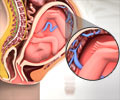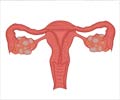New studies by scientists claim in their new studies that the analysis of the placenta could help in the early diagnosis of autism.
Scientists from the University of Yale stated that they believe to have found a way to spot autism early during birth by analysing and seeking out certain biological abnormalities present in the placenta.Explaining that autism is a developmental disorder that affects a child's social learning and communication skills, many health experts have stated that the early diagnosis of autism could greatly improve the chances for a successful treatment.
It was explained that the studies that had been conducted previously had showed the presence of "trophoblast inclusions" an indicator of any cellular abnormality in the placenta as a marker for Asperger Syndrome, an Autism Spectrum Disorder (ASD). The research team that was led by Dr Harvey Kliman research scientist in the department of obstetrics, gynaecology, and reproductive sciences at Yale School of Medicine had examined placentas from 13 autistic children and of 61 children without the disability. They explained that in each case, tissue samples from the placentas had been stored at birth.
When the placentas were compared the Yale team found that, the 13 placentas of autistic children were three times more likely to have trophoblast inclusions. Dr.Havey.J.Kliman, the study author said, "We knew that trophoblast inclusions were increased in cases of chromosome abnormalities and genetic diseases, but we had no idea whether they would be significantly increased in cases of ASD," He further added in a statement, "These results are consistent with studies by others who have shown that ASD has a clear genetic basis."
The results of the study have been published in the June 26 online issue of Biological Psychiatry. The researchers have also reported that they plan to conduct a larger study base with a more detailed and in-depth analysis of study by examining the presence of trophoblast inclusions as an indicator of ASD in future studies, with a larger study base and more in-depth analysis.
Fred R. Volkmar of the Yale Child Study Center, a researcher concluded by explaining that if the work is confirmed in the next series of studies, then the finding of trophoblast inclusions at the time of birth in the absence of any obvious genetic abnormalities would be a serious indication that the child would need of an examination by a specialist to determine the presence of ASD.
Advertisement











